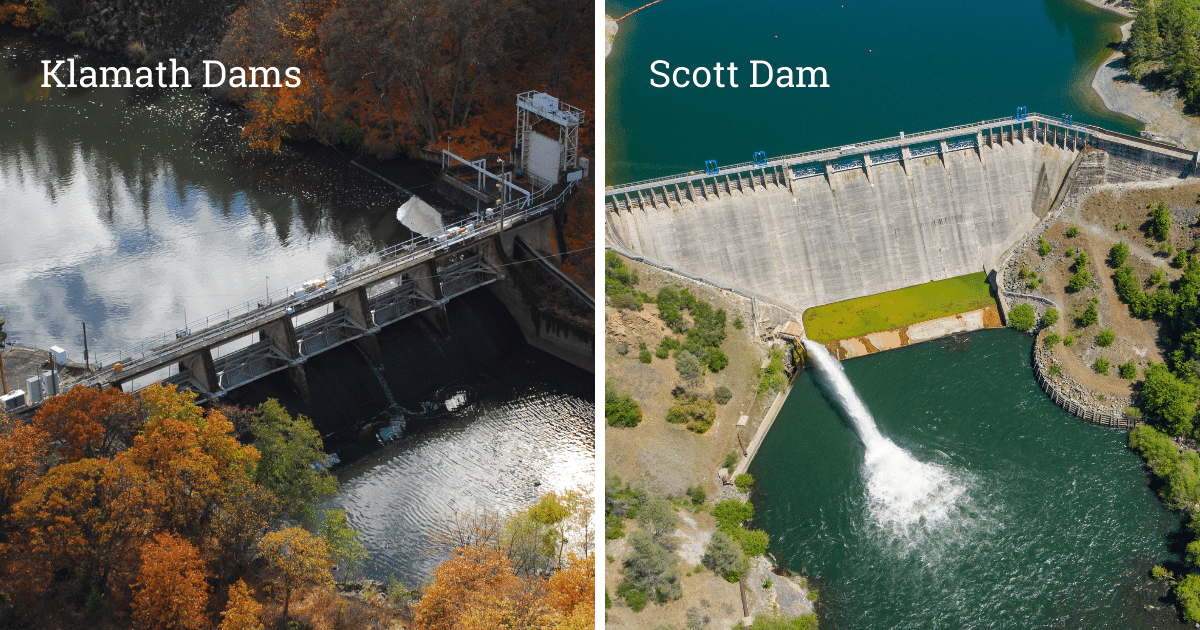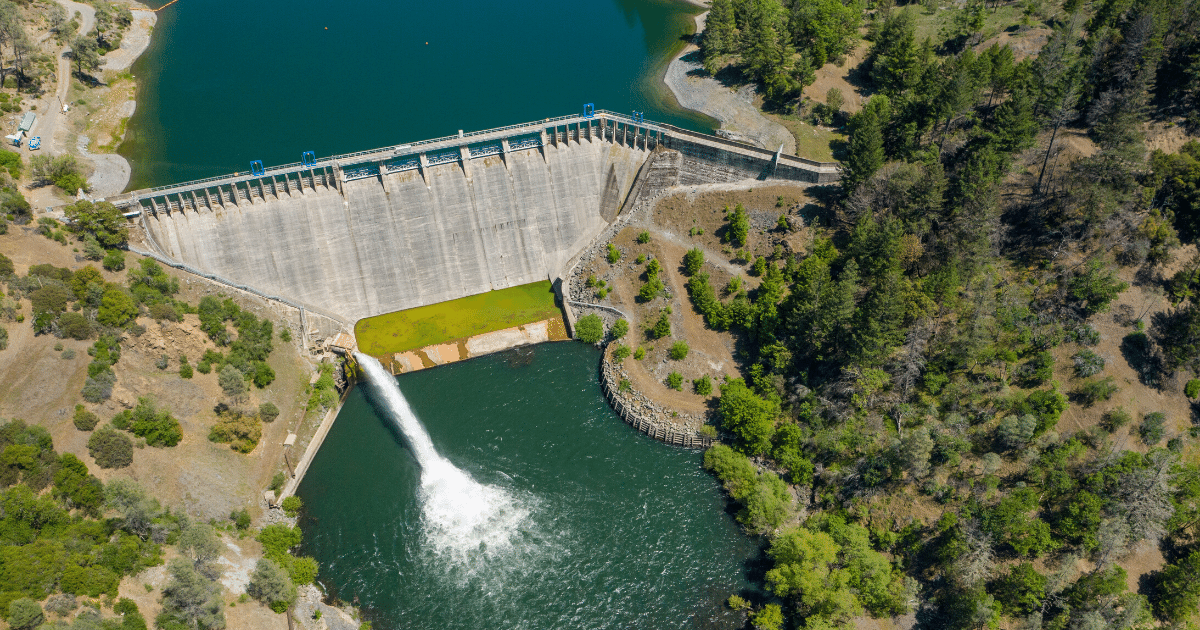Latest #DAMSOUT Update for Klamath and Potter Valley Project
#DAMSOUT
Klamath Dams – In July of 2020, the Federal Energy Regulatory Commission (FERC) approved the partial transfer of ownership of the lower four Klamath River dams from PacifiCorp to the Klamath River Renewal Corporation (KRRC) for the purpose of removal. The approval is conditioned on PacifiCorp remaining a co-licensee. We are continuing to pressure Warren Buffet, PacifiCorp, and Berkshire Hathaway to stick to the agreement.
During the week of October 19 – October 23, CalTrout participated in the Un-Dam the Klamath Week of Action led by Save California Salmon. People across the country joined members of the Karuk, Yurok, Klamath and Hoopa Valley tribes on Friday for a day of action to get the attention of Buffett, the owner of Pacific Power and the Klamath River dams, through a social media campaign.
Take action with us by telling Warren Buffett to move forward with the Klamath Dam Removal Agreement.
Preparing the Klamath Basin for Dam Removal Story Map
Scott Dam, Potter Valley Project
California Trout along with Two-Basin Solution partners, Humboldt County, Sonoma Water, Mendocino County Inland Water and Power Commission, and the Round Valley Indian Tribes submitted a plan earlier this year to the Federal Energy Regulatory Commission (FERC) on how the Potter Valley Project on California’s upper Eel River could continue to operate after its current license expires in 2022.
The Two-Basin Partnership is committed to each other and to working with all stakeholders, including Lake County. The partnership has been and will continue to meet with Lake County to develop solutions for addressing Lake County’s concerns. Moving forward, transparency and public participation are key.
The partnership is now commissioning additional studies to inform its application to FERC. One of these studies will look at the socioeconomic impacts that removing Scott Dam would have on Lake County. We are at the very early stages of this process, and everyone will have a chance to review the studies when they are complete and to contribute to these important discussions before any changes are made to the project.
To learn more about the Two-Basin Partnership, go to www.twobasinsolution.org.






